Pain Free Wisdom Tooth Surgery
- The removal of wisdom teeth, or third molars, is one of the most common surgical procedures carried out in INDIA.
- The wisdom teeth grow at the back of your gums and are the last teeth to come through. Most people have four wisdom teeth – one in each corner.
- Wisdom teeth usually grow through the gums during the late teens or early twenties. By this time, the other 28 adult teeth are usually in place, so there isn’t always enough room in the mouth for the wisdom teeth to grow properly.
- Because of the lack of space, wisdom teeth can sometimes emerge at an angle or get stuck and only partially emerge. Wisdom teeth that grow through like this are known as impacted.
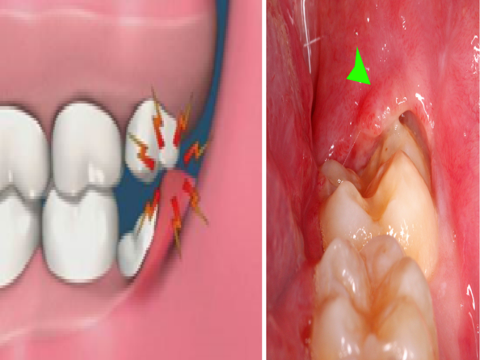


When to see a dentist?
- You should make an appointment to see your dentist if your wisdom teeth are causing severe pain. They’ll check your teeth and advise you whether they need to be removed.
- If your dentist thinks you may need to have your wisdom teeth removed, they’ll usually carry out an X-ray of your mouth. This gives them a clearer view of the position of your teeth.
- As with any teeth problems, it’s important to see your dentist as soon as possible, rather than waiting for your regular dental check-up
Why are wisdom teeth removed?
- Your wisdom teeth don’t usually need to be removed if they’re impacted but aren’t causing any problems. This is because there’s no proven benefit of doing this and it carries the risk of complications
- Sometimes, wisdom teeth that have become impacted or haven’t fully broken through the surface of the gum can cause dental problems. Food and bacteria can get trapped around the edge of the wisdom teeth, causing a build-up of plaque, which can lead to:- tooth decay(dental caries)
- gum disease(also called gingivitis or periodontal disease)
- pericoronitis – when plaque causes an infection of the soft tissue that surrounds the tooth
- cellulitis – a bacterial infection in the cheek, tongue, or throat
- abscess– a collection of pus in your wisdom teeth or the surrounding tissue as a result of a bacterial infection
- cysts and benign growths – very rarely, a wisdom tooth that hasn’t cut through the gum develops a cyst (a fluid-filled swelling)
Many of these problems can be treated with antibiotics and antiseptic mouthwash. Wisdom teeth removal is usually recommended when other treatments haven’t worked. Dentists and surgeons follow nationally approved guidelines for the removal of wisdom teeth.

How wisdom teeth are removed?
Your dentist may remove your wisdom teeth, or they may refer you to a specialist surgeon for treatment.
Before the operation, the procedure will usually be explained to you and you may be asked to sign a consent.
You’ll usually be given a local anesthetic injection to numb the area around the tooth. You’ll feel some pressure just before the tooth is removed, as your dentist or oral surgeon needs to widen the tooth socket by rocking the tooth back and forth.
A small cut in the gum is sometimes necessary, and the tooth may need to be cut into smaller pieces before it’s removed.
It takes anything from 45 minutes to 1 hour, or sometimes even longer, to remove a wisdom tooth.
After your wisdom teeth have been removed, you may have swelling and discomfort, both inside and outside your mouth. Occasionally, some mild bruising is also visible. This is usually worse for the first 3 days, but it can last for up to 2 weeks.
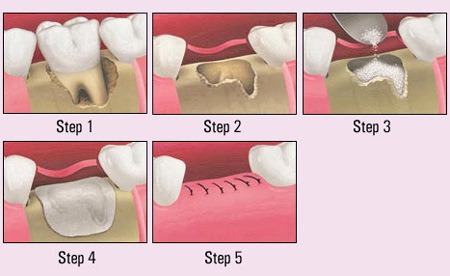
Possible Complications
As with all surgery, there are risks associated with removing a wisdom tooth. These include infection or delayed healing, both of which are more likely if you smoke during your recovery.
Another possible complication is “dry socket”, which is a dull, aching sensation in your gum or jaw, and sometimes a bad smell or taste coming from the empty tooth socket. A dry socket is more likely if you don’t follow the after-care instructions given by your dentist.
There’s also a small risk of nerve damage, which can cause a tingling or numb sensation in your tongue, lower lip, chin, teeth, and gums. This is usually temporary, but in rare cases, it can be permanent.
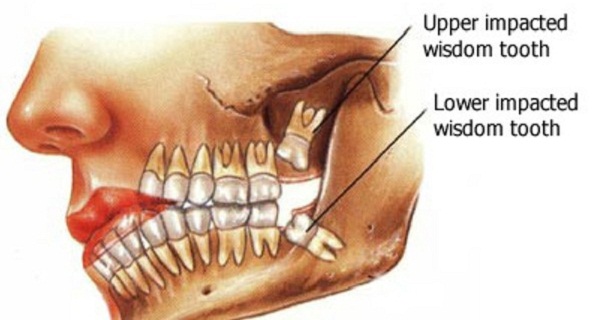
Cosmetic Dentistry
Ageing With A Beautiful Smile
We work passionately toward creating the most youthful smiles for patients whose natural teeth require replacement.
If your teeth are damaged in a way that makes it impossible to reconstruct them with fillings or you are missing one or more teeth, we can return the smile to your face as well as a strong bite and speaking ability with the use of advanced prosthetics.

Pain Free Wisdom Tooth Removal Surgery In Nigdi
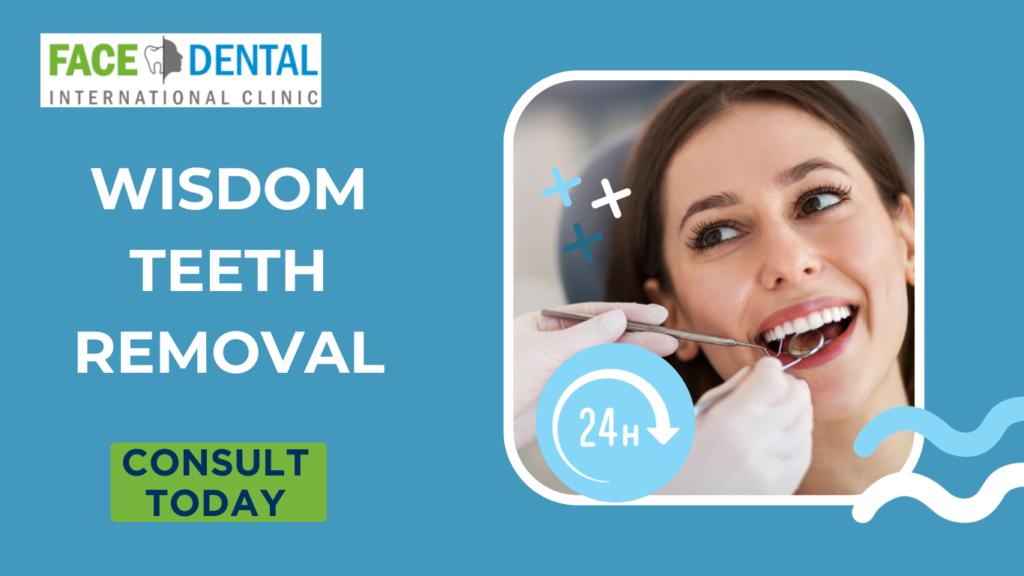
Wisdom teeth, those late-blooming back molars, often bring with them a not-so-welcome gift: the need for removal. These third molars, known as wisdom teeth, typically start pushing their way through the gums in late adolescence or early adulthood. Most people have four wisdom teeth, two in the upper jaw and two in the lower jaw. These teeth are located at the back of the mouth, one at each end on the top and bottom. While some people’s wisdom teeth emerge without issues, many find themselves in need of wisdom tooth extraction surgery. Lets explore everything you need to know about wisdom teeth removal, from why it’s necessary to what to expect before, during, and after the surgery. We’ll also discuss the cost of wisdom teeth removal surgery, ensuring you have all the information you need to make informed decisions about your oral health.

Why Wisdom Tooth Removal?
Why Wisdom Tooth Removal?
When Is Removal Needed?
- Impaction - Wisdom teeth often don't have enough space to erupt properly. When they can't emerge fully or at all, they become impacted. This can lead to pain, infection, and damage to neighboring teeth.
- Crowding - The emergence of wisdom teeth can cause crowding or shifting of other teeth, affecting your bite and alignment.
- Infection - Partially erupted wisdom teeth can create pockets where bacteria can accumulate, leading to infection and inflammation known as pericoronitis.
- Decay or Gum Disease: Wisdom teeth are challenging to clean due to their location at the back of the mouth, making them more susceptible to decay and gum disease.
- Cysts or Tumors - Rarely, but importantly, cysts or tumors can develop around impacted wisdom teeth. These growths can cause significant damage to the jawbone and nearby structures, making removal necessary.
About Wisdom Tooth Surgery In Nigdi
Before Wisdom Tooth Surgery
Before undergoing wisdom tooth surgery, you'll typically have a consultation with an oral surgeon or dentist. During this appointment, they will examine your mouth and may take X-rays to assess the position of your wisdom teeth and their potential impact on your oral health. You'll also discuss your medical history, any medications you're taking, and any allergies or sensitivities you have. Be sure to mention any existing health conditions or concerns during this consultation.
Before Surgery
Before undergoing wisdom tooth extraction, you'll typically have a consultation with an oral surgeon or dentist. During this appointment, they will examine your mouth and may take X-rays to assess the position of your wisdom teeth and their potential impact on your oral health. You'll also discuss your medical history, any medications you're taking, and any allergies or sensitivities you have. Be sure to mention any existing health conditions or concerns during this consultation.
During Wisdom Tooth Surgery
Wisdom tooth surgery is a common dental procedure and is often performed as an outpatient surgery, which means you'll go home on the same day. The process typically involves the following steps -
1. Anesthesia - You'll receive local anesthesia to numb the affected area. In some cases, general anesthesia may be used to put you to sleep during the procedure.
2. Tooth Extraction: - The oral surgeon or dentist will make an incision in your gum tissue to expose the tooth and bone. The tooth may be removed in one piece or in smaller sections for easier extraction.
3. Closure - After the tooth is removed, the surgical site is cleaned, and any debris is cleared. Stitches or sutures may be used to close the incision.
4. Recovery - You'll be monitored for a short time after the surgery to ensure there are no immediate complications. Once you're stable, you'll be sent home with post-operative instructions and any necessary prescriptions for pain relief and infection prevention.
After Wisdom Tooth Surgery
The recovery period following wisdom tooth extraction can vary from person to person, but there are some common experiences and guidelines to keep in mind -
1. Swelling and Discomfort - Swelling and discomfort are common after the surgery. Applying cold packs to the area and taking prescribed or over-the-counter pain medications can help manage these symptoms.
2. Dietary Restrictions - Soft foods and liquids are recommended in the days following surgery. Avoiding hard, crunchy, or spicy foods can prevent irritation to the surgical site.
3. Oral Hygiene - Proper oral hygiene is essential during recovery. Your dentist or oral surgeon will provide instructions on how to clean your mouth without disturbing the surgical site.
4. Rest - Rest is crucial for healing. Avoid strenuous activities and get plenty of sleep to aid the recovery process.
5. Follow-Up Appointments - Be sure to attend any scheduled follow-up appointments with your oral surgeon or dentist to monitor your progress and remove any stitches if necessary.
Embark on your journey towards a radiant, confident smile with the best Wisdom Tooth Removal Surgery in Pune.
Schedule your wisdom tooth surgery today to explore how our dentist services can transform your smile and enhance your life.
About Us
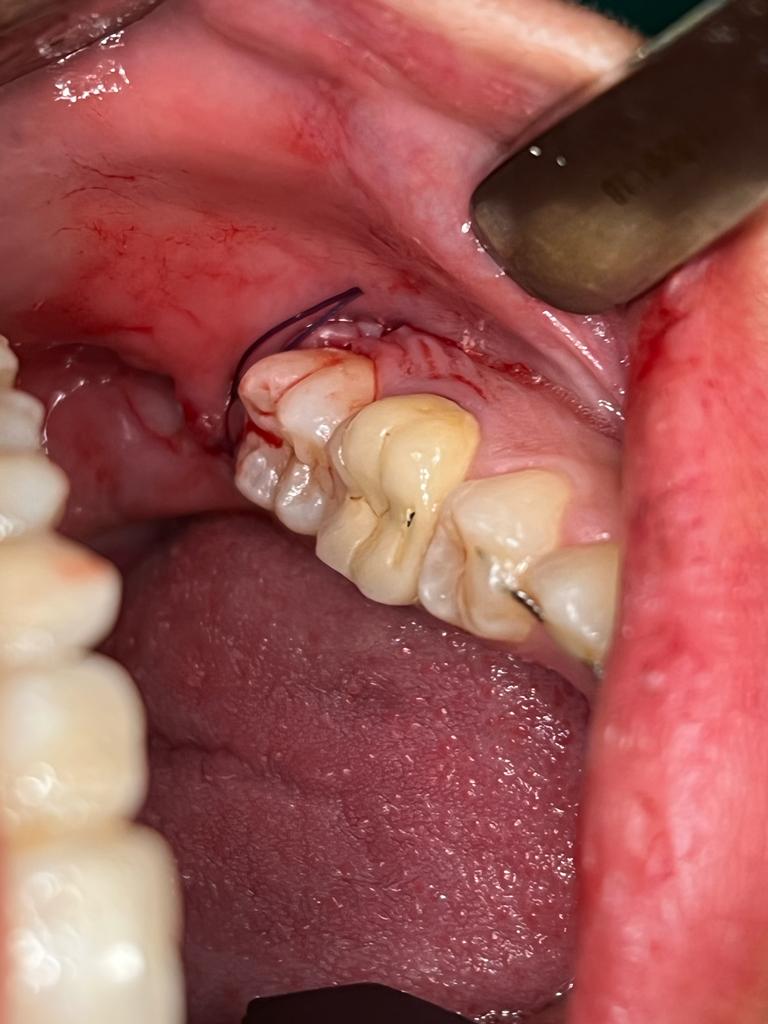
Wisdom teeth removal is a common dental procedure that aims to alleviate pain, prevent complications, and maintain overall oral health. If you suspect your wisdom teeth may need extraction or have been advised by a dental professional, it’s essential to follow through with the procedure to avoid potential issues down the road. Face N Dental International Clinic uses modern dental innovation and has transformed the way we approach wisdom teeth removal surgery or wisdom tooth extraction. If you’re considering a wisdom teeth removal surgery in Ravet, Pimpri Chinchwad, we can set you on the path to a beautiful, radiant smile. We serve as a comprehensive dental hub catering to residents in the vicinity, including Ravet, Nigdi, Pradhikaran, Akurdi, and Pimpri Chinchwad and Pune, offering a range of dental solutions under one roof. Schedule a Consultation at Face N Dental International Clinic for Wisdom Tooth Surgery in Nigdi. Take the proactive step toward optimal oral health by scheduling a consultation at Face N Dental International Clinic in Nigdi.
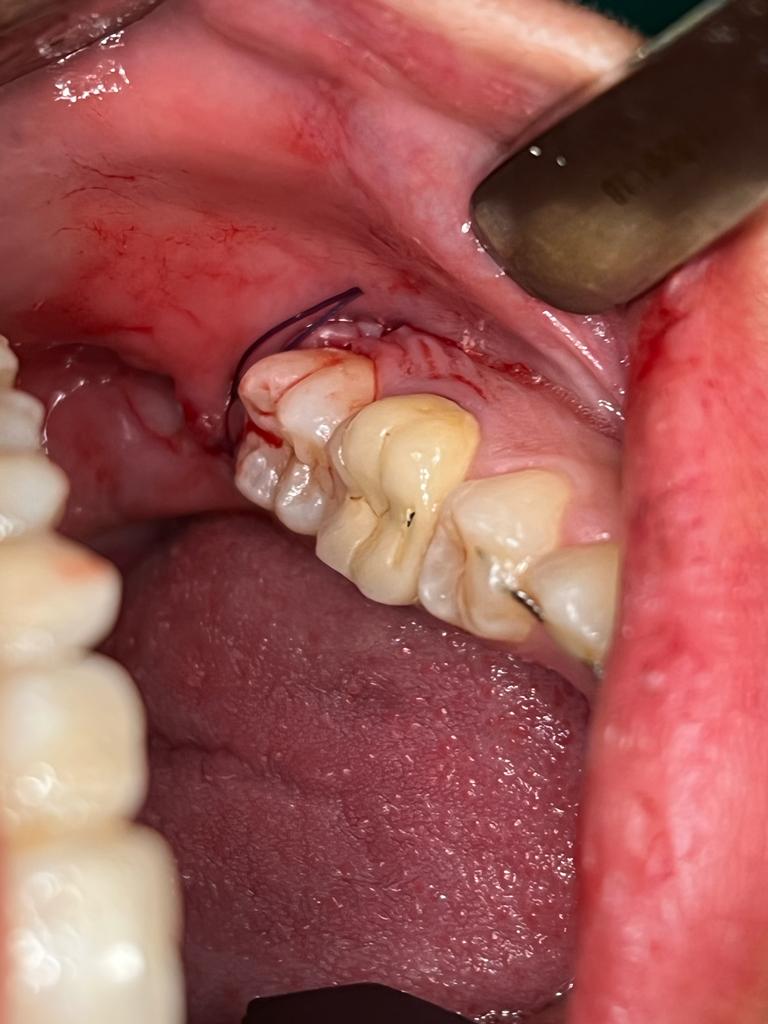
Review Wisdom Tooth Surgery In Nigdi
Book Your Appointment Now
&
Get Ready To Show Off Your Shining Smile!
Frequently Asked Questions
Wisdom teeth, also known as third molars, are the last set of molars at the back of your mouth. They often need removal because they can become impacted, causing pain, infections, or other dental issues.
Common signs that you may need wisdom tooth removal surgery include pain or discomfort in the back of your mouth, difficulty opening your jaw, or recurring infections. X-rays can also reveal impacted or misaligned wisdom teeth.
During the procedure, you will be under anesthesia, so you won't feel any pain. However, you may experience some discomfort and swelling in the days following the surgery. Your oral surgeon will prescribe pain medication to manage this.
Recovery time varies, but most people can resume regular activities within a few days to a week. You'll need to follow post-operative care instructions carefully to ensure a smooth recovery.
While complications are rare, they can include infection, dry socket, or nerve damage. Your oral surgeon will discuss these risks with you before the surgery and take precautions to minimize them.
The cost of wisdom teeth removal varies based on factors like the complexity of the extraction and location. Many dental insurance plans cover this procedure partially or in full. It's advisable to check with your insurance provider for specific details.
Wisdom tooth surgery is generally low-risk when performed by skilled professionals. Common risks include infection and bleeding, but serious complications are rare. Your dentist will assess your individual case and discuss any concerns before the procedure.
Tags – wisdom teeth removal, wisdom tooth extraction, wisdom teeth removal cost, wisdom tooth surgery, wisdom teeth removal surgery, wisdom tooth surgery in Nidgi, wisdom teeth removal Surgery in Ravet PCMC Pune, wisdom teeth removal surgery near me, wisdom teeth removal surgery in Nigdi Pimpri Chinchwad, wisdom teeth removal surgery in Akurdi PCMC Pune
